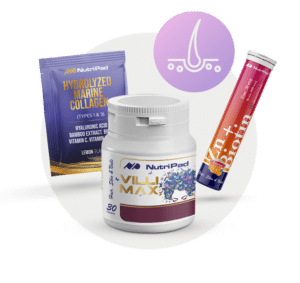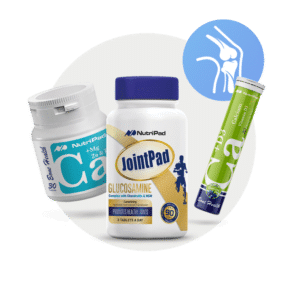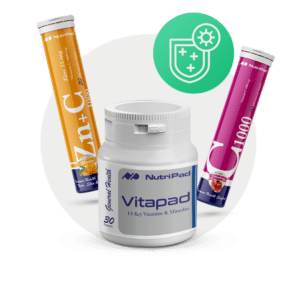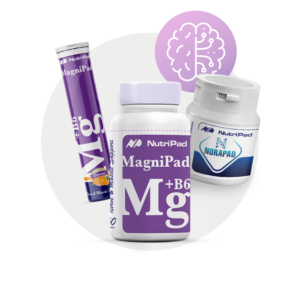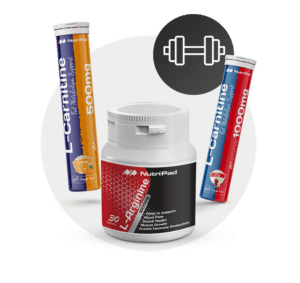Pregnancy and infertility supplements
Supplements used during pregnancy
Pregnancy supplements are products made according to the needs of pregnant women to bring the vitamins and minerals needed for the mother and fetus. Your doctor may advise you to use them when planning for pregnancy and during it.
Having a healthy diet is essential for all people, especially pregnant women. However, taking a pregnancy supplement to help cover any possible gaps between an ideal diet and the needs of the mother and fetus during this period is appropriate.
What vitamins and minerals are vital to be present in a pregnancy supplement?
During pregnancy, the fetus receives all the nutrients from the mother. The need for some of the vitamins and minerals is increased during pregnancy. On the other hand, some vitamins, such as vitamin A and its derivatives, need to be used cautiously during pregnancy as they harm the fetus. However, their deficiency is also problematic.
All nutrients are important, but these six substances play a vital role in your child’s growth and development during pregnancy:
– folic acid
– Iron
– Calcium
– Vitamin D.
– DHA
– Iodine
Other vitamins and minerals such as vitamin C, vitamin B1 (thiamine), vitamin B2 (riboflavin), vitamin B3 (niacin), vitamin B2, vitamin E and zinc are also essential during pregnancy.
Folic acid (Folate)
Folic acid is one of the vital substances for the fetus, especially in the first weeks of pregnancy. Folic acid is necessary for the growth and development of the nervous system in the first weeks of pregnancy. Folate deficiency results in defects in the fetus. If you are likely to get pregnant, you should have enough folate to prevent congenital problems in the baby’s brain and spinal cord. Therefore, folic acid is one of the vitamins that should be considered even before pregnancy. Some experts recommend that all women of fertility ages should take folic acid supplements. Note that neural tube defect occurs in the first weeks of pregnancy before many women become aware of their pregnancy. (About half of the pregnancies are not planned.) In some countries, foods are fortified with folic acid to eradicate any possible deficiency of this important.
In general, it is recommended that all women who are pregnant should consume 400 micrograms of folic acid daily. The need for folic acid increases during pregnancy. (The RDA of folic acid increases to 600 micrograms daily). Folic acid should start three months before pregnancy and continue for the first 12 weeks after conception. If pregnancy occurs without prior planning, it is necessary to start taking this supplement as soon as you know about pregnancy.
If you have a history of neural tube defects in your previous babies, you should consult your physician about folic acid. Studies have shown that if you have a baby with this defect, consumption of higher doses (up to 4,000 micrograms per day) may be helpful at least one month before and during the first trimester of pregnancy.
What foods are rich in folate?
– Green leafy vegetables (Notice that cooking vegetables destroys a large amount of folic acid in them. Therefore, it is recommended that these vegetables be used raw).
– Nuts
– Beans
– Citrus fruits
– Egg
Given the importance of folic acid during pregnancy, even if you can get folate from food, it is best to use supplements as a backup.
What are the roles of Iron in the body?
Your body uses iron to make hemoglobin (protein in red blood cells that helps transmit oxygen from the lungs to the rest of the body). Iron helps your body make more red blood cells. These blood cells are needed to grow the baby. The need for iron during pregnancy is twice as much as before pregnancy.
Which foods are rich in Iron?
You can get iron from food sources. Good sources of iron include:
– Red meat, chicken and seafood
– Vegetables with green leaves e.g. spinach
– Beans
– Nuts
– Raisins
– dried fruits
What increases or decreases iron absorption?
Note that foods containing vitamin C can increase iron absorption. It is better to have foods like orange juice, tomatoes, strawberries and grapefruit with iron-rich foods.
Of notice, calcium, coffee, tea, egg yolk, and soybeans can prevent iron absorption. Try to avoid eating these items when you get iron-rich foods.
What could be happen if you don’t get enough iron during pregnancy?
If you don’t get enough iron during pregnancy, you are more likely to develop these problems:
– Infections
– Anemia: this means that not enough hemoglobin is made for blood formation and oxygen transfer. The result is fatigue, hair loss and many other problems.
– Fatigue: Even with a small amount of activity, you feel tired or worn out.
– Premature birth: meaning that your baby is born prematurely, before the 37th week of pregnancy.
– Low birth weight: means your baby is born weighing less than 5 pounds (i.e. about 2.5 kg).
Calcium
– Calcium is a mineral that helps the growth of bones, teeth, the normal functioning of the heart and the muscles and nerves of your child. During pregnancy, you need 1000 to 1200 mg of calcium daily. You can get this amount by taking supplements during pregnancy and eating foods rich in calcium.
What foods are rich in calcium?
Good sources of calcium include:
– Dairy products (milk, cheese and yoghurt)
– Broccoli and kale
– turnip
– Almonds
If you don’t get enough calcium during pregnancy, your body will take it from your bones and give it to your baby. This can cause diseases such as osteoporosis later in life. Osteoporosis makes your bones thin and break easily.
Iodine
– Iodine is a mineral that your body needs to make thyroid hormones. Iodine helps the body to store and use energy from food. During pregnancy, you need iodine to help develop your baby’s nervous system.
– The nervous system (brain, spinal cord, and nerves) helps your baby move, think, and feel.
– You need 220 micrograms of iodine daily during pregnancy. Not all prenatal supplements contain iodine, so eat an adequate amount of foods that contain iodine. Ask your doctor if you need an iodine supplement.
Which food sources are rich in iodine?
Good sources of iodine include:
– Fish
– Milk, cheese and yoghurt
– Enriched cereals and bread (check the package label)
– Iodized salt (check the package label)
What are the consequences of iodine deficiency in pregnancy?
Iodine is vital for healthy thyroid function in women during pregnancy.
Iodine deficiency can cause the following:
– Abortion
– Stillbirth
– Stopping physical growth
– Severe mental disability or retardation
– Deafness
What is vitamin D and what is its role during pregnancy?
Vitamin D helps your body absorb and manage calcium. It also helps your nerves, muscles and immune system function.
– Vitamin D helps your baby’s bones and teeth grow.
– During pregnancy, you need 600 international units of vitamin D every day. You can get this amount from food or from supplements.
Which foods are rich in vitamin D?
Good sources of vitamin D include:
– Fatty fish such as salmon
– Milk and cereals to which vitamin D has been added (check the product label)
What is DHA and what is its importance during pregnancy?
Docosahexaenoic acid (DHA) is a type of fat called omega-3 fatty acid that helps in growth and development. During pregnancy, you need DHA to help your baby’s brain and eyes develop. Studies show that omega-3 can reduce the risk of premature birth and low birth weight. Not all prenatal vitamins contain DHA, so ask your doctor if you need a DHA supplement. During pregnancy, it is recommended that women take 8 to 12 ounces of low-mercury seafood each week.
What food sources are rich in DHA and omega-3 fatty acids?
Good food sources of DHA and omega-3 fatty acids include:
– Herring, salmon, salmon and shrimp
– Nuts such as walnuts, almonds and pistachios
– Orange juice
– Milk
– Eggs with added DHA (check the package label)
Apart from the above, a supplement for pregnancy should contain other vitamins and minerals such as biotin and other group B vitamins, vitamin K, vitamin E, copper, manganese, magnesium and selenium.
Time to start taking supplements during pregnancy
– The best time to start taking prenatal supplements is before pregnancy. Folic acid is vital. You should start taking folic acid supplements at least one month before trying to conceive.
– Some doctors recommend that all women of childbearing potential take prenatal vitamins, even if they are not planning to become pregnant.




